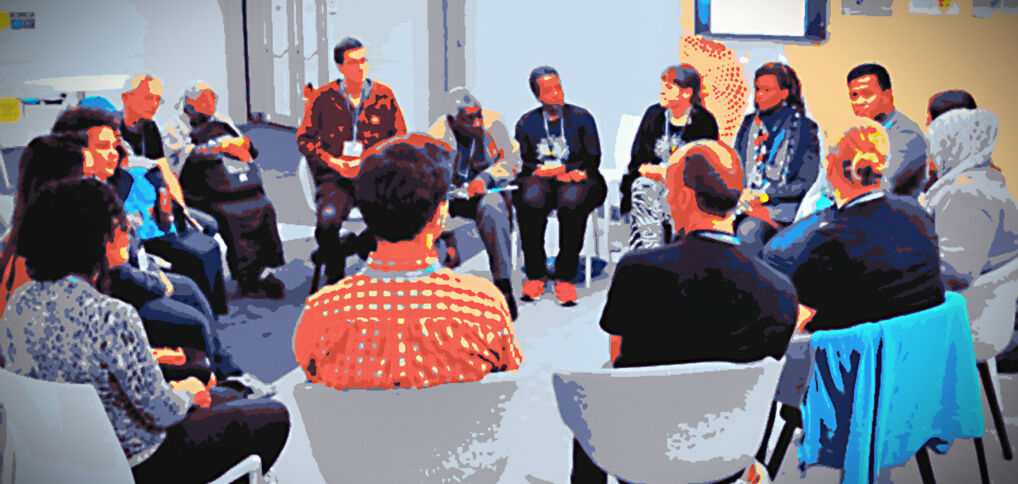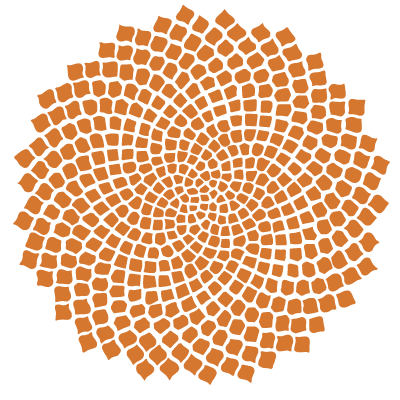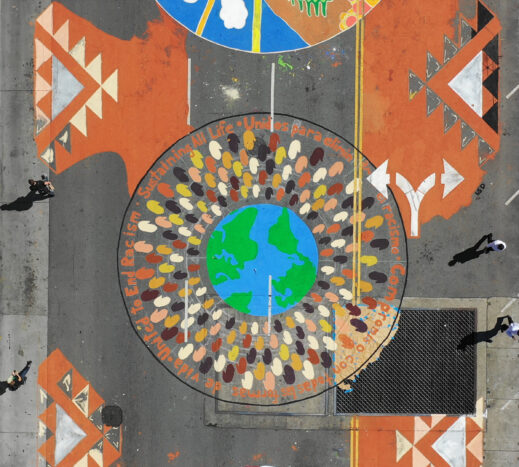
View this resource
as a PDF >>
****
View this resource
in French >>
****
View this resource
in Spanish >>
Sustaining All Life wants and needs everyone, in particular, disabled people.*This is not about doing a favor—all perspectives and voices are needed as we work to sustain all life.
People with disabilities comprise ten to fifteen percent of the global population. Members of this group are found in all sub-populations. It is likely that there will be more and more disabled people with the increasing effects of climate change.
Disabled people are a resilient bunch. They are creative—they have often had to do things a bit differently. They have much to offer. They are excluded primarily because of discriminatory attitudes, not because of their health problems or physical or emotional limitations. Those unfamiliar with disability sometimes fear disabled people, a reaction often based in ancient superstitions and irrational fears of contagion.

The United Nations, Red Cross, and other organizations often use the term “people with special needs.” This generalization does not acknowledge and address people’s specific circumstances—for example, their vision, hearing, mobility, developmental disability, possible chronic illness, or gender and ethnicity. There can be an attitude of “they need too much,” with triage as the result. Another damaging myth is “the professionals know best.” The disability community’s slogan is “nothing about us without us!”
Disabled people have organized and fought for progressive policies. For example, the United Nations Convention on the Rights of People with Disabilities (UNCRPD) got a number of countries and communities to institute not only disabled people’s rights to medical and rehabilitation services, but also equal access to education, employment, transportation, and legal/social support.
People with disabilities are uniquely impacted by climate change. For example, in a disaster they can be neglected or even left to die.
Policy-makers are beginning to include their voices but still don’t understand what disabled people actually need to survive in environmentally compromised circumstances. In reality we can think and care about everyone equally well.
Connecting with disabled people

Yes, there are things to learn in order to have disabled people in our lives. But it isn’t about following rules or “being nice.” It’s about making friends. It is about connecting. It’s about thinking flexibly. The best way to learn about accessibility is by having relationships with disabled people (not by acting as “do-gooders” and “helping them.”) Children in integrated school settings can be good models—they often easily include their disabled peers. It’s possible for us all to play together, have fun, and figure things out as we go.
You can find “disability awareness tips” on the Internet. Browse for “access and accommodation,” “disability inclusion,” “local sign language interpreters.” There are helpful sites in hundreds of languages. Examples of “tips” are as follows:
- Ask first if a disabled person needs assistance. Don’t grab the arm of a visually impaired person, or push someone’s wheelchair without asking. Ask for and listen to instructions. Directly face a hearing-impaired person when speaking. When possible, include amplification at events.
- Don’t be afraid of “making mistakes.” Don’t worry about saying the wrong thing or using the wrong words. Relax—it’s okay to connect and learn as we go.
- Disabled people will willingly teach us about their needs. They can help us become good allies.
In Sustaining All Life we work to
(1) create awareness of the emotional damage that interferes with thinking about and acting to end environmental degradation, and (2) undo this damage on an individual basis.
We offer mutual support, engaged listening, and a process that frees people from the effects of oppression and other hurts. Using this process allows people to think more clearly about the environmental crisis, build and strengthen alliances, and enjoy working together to set the world right. It helps them build courage and stamina and the confidence that we can create a just, sustainable future for everyone.
*We define disability oppression (sometimes called ableism) as prejudice against people with disabilities. Disabled people are assumed to be inferior, burdensome, unskilled, asexual; and unworthy of rights to, access to, and inclusion in mainstream society.


